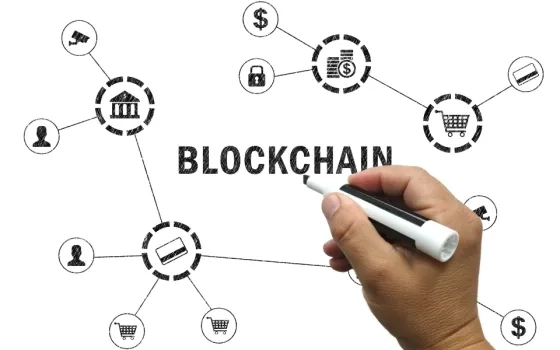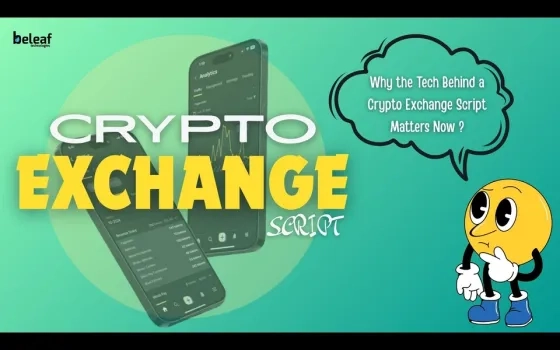A constantly growing tech-oriented industry, Fintech is spreading worldwide faster with the launch of various finance apps. Such apps help with new approaches one needs to conduct routine jobs, like payment processing and management.
Did you know worldwide, many people don’t have any bank accounts?
Kudos to the emerging financial technology that's transforming the way people can transact with businesses, family, and friends. We need a phone to withdraw money, send money, take insurance or loan, and much more. Mobile wallets, also known as digital wallets, when liked with a cell phone, facilitate not only money transfers but also purchases with no physical use o checks, cash, or credit/debit cards.
With the expanding Fintech technology, the concerns about cybersecurity in this industry are also rising. On a global scale, the expansion of fintech marketplaces and companies has resulted in rising vulnerability exposure in fintech infrastructure, making it an aim for cybercriminal attacks.
Thanks to the growing technology, Blockchain, appeared as an invader in such cyber attacks.
While the finance industry has been climbing with time, insights are being noticed that showcase an exceptional level of disruption blockchain technology is imposing on this industry. It has taken the world by storm because of its trait of keeping transactions untouched and secure.
This post aims to explain fintech and blockchain, how both are related, and how blockchain is used in the fintech industry.
FinTech Industry & Blockchain Market 2022 - Facts & figures
- While turning the pages, we witnessed that in 2018, blockchain solutions' market size for financial institutions and banking systems was around $0.28 billion.
- In the financial sector, blockchain apps will likely expand in upcoming years, grabbing a market share of approximately $22.5 billion in 2026 with a CAGR of around 73%.
- A report says lately, in the last six months, across top economies, one out of every three people is using at least two fintech services.
- A Market Research Future (MRF) report says by 2023, in the FinTech market, Blockchain is expected to catch $31.4 billion with a CAGR of 47.9%.
- Blockchain, being resistant to modification, its data appears as a secure record of transactions.
- Not only the startups, the giants like Alibaba and Apple, are also participating and rising in this industry.
- Even the tech-savvy gen needs help to grasp its intricacies. Still, its benefits to the fintech industry are making public, as well as private ledgers, adopt it for record keeping and inter-company transactions.
- In the fintech sector, about $100 billion surge has been noticed in global investment since 2010.
What is Fintech? How Does It Work?
FinTech, Financial Technology, the term first used in the 1990s, was solely relevant to the financial industry but soon spread into various other diverse sectors, from mobile banking and insurance to investment and cryptocurrency apps.
Disrupting traditional financial services, Fintech is emerging as a new and innovative approach. Also, it's contributing to improving finance activities using advanced technologies.
Fintech includes startups and well-established enterprises aiming to enrich the financial services offered in this sector. Including varied technologies, business models, and products in fintech are changing it significantly.
In the financial sector, FinTech faces the opposing and conflicting eyes of financial regulations, like government and banks. The reason behind this is a new approach that's not that effective but may impact such organizations and replace various banking processes.
With the growth of fintech, the concerns about cybersecurity in this industry are also increasing. On a global scale, the expansion of fintech marketplaces and companies has resulted in rising vulnerability exposure in fintech infrastructure, making it an aim for cybercriminal attacks.
But fortunately, with the evolution of technologies, current fraud risks are diminishing, with threats constantly emerging.
A multifaceted concept, fintech easies financial transactions for businesses and consumers, making them more affordable and accessible. Besides, it can also be applied to services and companies using advanced technologies, like big data, AI, and encrypted blockchain technology, to permit secure transactions within an internal network.
Generally speaking, fintech helps streamline the transaction process, reducing unnecessary steps for all the parties involved.
What Is Blockchain? How Does It Work?
Have you ever thought of a simple way to complete transactions without dealing with any online wallet, banks, or third-party apps?
Well, today, we can say 'yes,’ and the credit goes to the blockchain.
Traditionally, various transactions used to get failed because of technical issues at the bank, account hacking problems, exceeding money transfer limits, or additional charges for money transfers. And to resolve such issues, the blockchain concept arose.
A form of virtual or digital currency, cryptocurrencies, run on technology, i.e., Blockchain. This technology is like a blessing as with this technology, no one can forge cryptocurrencies, they don't need any central authority to run transactions, and robust and complex encryption algorithms protect them.
Among the thousands of cryptocurrencies, one reigns supreme, namely Bitcoin.
Simply put, Blockchain is a collection of records linked together that can't be altered and protected using cryptography. It's a type of decentralized and distributed ledger that maintains an immutable and permanent record of transactional data in sequential order. It stores transactional data in a constantly rising list of records known as blocks. Moreover, as mentioned above, it uses cryptography to join and secure these blocks.
All the blocks include three elements:
- Timestamp
- Hash pointer link to the previous block
- Transactional data
Key Features of Blockchain
1. Decentralized
A blockchain-enabled decentralized network performs on an end-to-end basis, which means blockchain diminishes the risks by storing data centrally.
2. Immutable Record
Considering blockchains' design, their data can't be modified. All blockchain networks stick to a specific protocol for approving new blocks. After being recorded, data of any block can't be changed without changing all the blocks in a sequence that demands the consent of the network majority.
3. Distributed Ledger
It's a database that is consensually synchronized and shared across various institutions, websites, or geographies. In the distributed network, all the computers maintain the ledger's copy to ensure transparency and avoid a single point of failure (SPOF). Each copy is validated and updated simultaneously.
Evolution of Blockchain Technology
Until yesterday, we used to trust third parties to conduct all our transactions, storing data centrally.
Just imagine what the situation would be if one or, say, all of these third parties become frauds. Well, it's not even easy to imagine this.
But, the evolution of Blockchain has centralized the data with no single authority. Blockchain technology in Fintech cuts the middle man, offering strength to the assets' owner, like tokens or data carrying some financial value.
On the other hand, the distributed infrastructure lets Blockchain share details that are secure and unalterable, ensuring data integrity. Blockchain technology is a significant tool for developing trust among consumers and businesses. A distributed ledger can perform various functions usually carried by central 3rd-parties.
Top Benefits of Blockchain in Finance
For years, Blockchain has been attempting to explore various alternatives; one such is the use of blockchain technology.
Fintech and blockchain hold the caliber to modify how the financial sector performs.
A sequence of immutable blocks, Blockchain can serve as the basis of all types of fintech apps. Also, it can diminish the trust issues between the transacting parties.
The use of blockchain in the Fintech market will lead to the development of some most secure pieces of software.
Let’s talk about its top benefits.
1. Speedy Transactions with No Middleman
The process of sending and receiving money becomes faster with Blockchain technology. It appears as the basis for all sorts of quick and secure fintech apps. Apart from that, top-quality fintech apps can include a real-time data upgrading feature that offers real-time data to users on their transactions and ensures transparent and error-free transactions.
Without middlemen, Blockchain's caliber of quick transactions will transform the fintech industry.
2. Peer Integrity
Within Blockchain, smart contracts are small pieces of code that perform the role of banks and other financial entities they used to in today's financial environment.
Smart contracts ensure the transfer of specific funds when specific conditions are met. Besides, smart contracts also offer a robust sense of integrity between peers.
3. Reduce Costly Auditing Exercises
Currently, auditing exercises are costly and take much of the time of company auditors.
Blockchain seems to be a source of trust that offers a digital fingerprint that is tamper-proof and immutably time-stamped for all transactions.
This way, there will be no need for costly audit exercises and external auditors.
4. Reduce Transaction Costs
Across the globe, firms make around $40 billion every year by charging customers an amount for accomplishing transactions. Over the last decade, this tradition has been followed by financial regulators that make us pay for using our money.
With blockchain, the future of Fintech seems to diminish this charge of sending and receiving funds.
As blockchain fintech apps allow direct and peer-to-peer transactions with no need for any middleman, all unnecessary and extra fees and charges can be removed, leading to reduced costs for transacting.
5. Secure & Cross-Border Transactions
Blockchain is entirely internet-based and doesn't demand any specific setup to perform. That's why people don't need to deal with the local entity, which facilitates users to access their details and handle their funds from anywhere.
This would be a great step from the current mode in which it takes days to complete the cross-border transaction.
6. Improves Security
Blockchain is based on a secure and robust decentralized framework that can assist in improving security by barring denial of service attacks, avoiding data tampering, and stopping identity theft.
Additionally, Blockchain trends state that by decentralizing the data and sharing it across the complete blockchain network in the financial system, all the transactions will become more secure. Securing all the transactions cryptographically will lead to a strong financial system.
7. Offers Secure Digital Identities
The best part about Blockchain is its caliber to offer secure digital identity management.
With blockchain technology, in the financial system, robust and secure end-to-end networks are used for exchanging money.
In the future, in the fintech sector, until blockchain developers ensure a secure registration process, end-users won't have to fret about the transacting party on another edge.
With Blockchain, anti-money laundering and know-your-customer protocols would become just mere formalities as it will eliminate the risk of accidentally dealing with the wrong person.
High-end blockchain apps would also demand a one-time registration process that will save much time and effort for the users.
8. High-End Regulatory Auditing
Developing fintech apps integrating blockchain technology will allow fintech developers to craft top-notch auditing protocols. A blockchain stores linear blocks that hold a new entry for all the new actions and never intrude on old blocks despite how big the system becomes. It can offer entire data to the developers they need to conduct a secure and fast audit of transactions.
What is The Role of Blockchain in the Fintech Industry?
The best way to analyze how Blockchain technology is impacting FinTech is to target the economy's key areas.
1. Trading & Trade Finance
Currently, trade finance relies on the circulation of paperwork worldwide for the acknowledgment of information.
Generally, share or stock purchases need to struggle while passing through brokerage, clearing, exchanges, and settlement processes. This demands at least three days for the settlement that can extend over weekends as all the traders have to maintain their databases for all their transaction-based documents and frequently check this database for improved accuracy.
In financial services, blockchain comes in to free the traders from such time taking jobs of database checking and optimizing the whole lifecycle. This lowers the linked risks also, paces up the settlement process, and improves trade accuracy.
2. Regulatory Compliance
In the Fintech sector, this is one of the major blockchain use cases.
Fintech companies are adopting blockchain technology to enhance regulatory compliance. With the help of this technology, they track all the transactions and record every action associated people take to free up regulators from confirming the record authentication.
Besides, this technology strengthens regulators by facilitating them to review the original documents, not the manifold copies.
So, by diminishing the errors possibilities and ensuring the records' integrity for financial reporting and audits, Blockchain decreases the cost and time of accounting and auditing.
3. Auditing
This is one of the widely known use cases of blockchain in fintech. This process verifies the accounts and locates the inconsistencies, if any. Besides being complex, this process is also slow.
However, with Blockchain, it becomes easier. You can ask your blockchain app development company to append the record straight to the ledger providing the best way to inspect and upgrade data.
4. Banking and P2P payments
Most banking setups are suffering from improper administration and undefined inefficiency, and these points of concern majorly affect settlement and clearing banks' domains.
The inclusion of decentralized systems following varied consensus algorithms can stuff these gaps that are created by the involvement of multiple levels. And here arrives the blockchain technology that will fit in perfectly.
Currently, banks are well-versed in the benefits of blockchain in the Fintech industry, like faster transactions, lower costs, and more. This is convincing millions of financial bodies worldwide to explore the chances of switching to digital currencies and analyzing more blockchain fintech solutions.
When we come to P2P payment services, here also, Blockchain appears as a profitable change.
Let's consider major financial services to get to this point.
Credit Card Payment
Online payments through credit cards give birth to three issues; fraud, high processing charges, and security concerns.
The adoption of Blockchain can bring these issues down.
International Payments
International payments are running in their fundamental stage, where it's a closed and separate system. Generally, international payments demand a day or even more to process and can be accomplished during the working or opening hours of payment agencies. It's because, before reaching the destination, payments will pass through various banking systems holding their specific processes. This adds up to one more job of cross-checking data.
Implementing technology in banking and fintech may avoid cross-checking data jobs across various organizations included in international funds transfers, getting readily authenticated and streamlined over various stages of checks.
So, by offering banking services to the unbanked, decentralized ledger, technologies will emerge with a plethora of opportunities for the ones who fail to open their bank accounts by facilitating them to access banking services using their smartphones.
A report by McKinsey states that around 2.5 billion adults can't access banking services, which is approximately half, even more, the worldwide population of adults.
But today, billions of these groups own smartphones that ease them to send or receive payment.
Crypto Lending
Crypto lending arrives with a new, transparent and efficient lending process in the finance industry.
The borrowers keep their crypto assets as collateral to get a stablecoin or fiat-based loan. On the other hand, lenders offer them assets required for the loan at a pre-decided interest rate. To borrow crypto assets, sometimes, the borrowers use their fiat currency or stable coins as collateral.
New Crowdfunding Models
The process of crowdfunding demands asking the crowd to contribute an amount to raise funds that are usually conducted online. Through IEO, ICO, and other approaches, Blockchain makes the fundraising process transparent and speedy compared to funding models that were followed in the past.
Digital Identity Management
Banks follow strict AML checks and KYC, but still, the increase of fraudulent accounts is constantly increasing. Clients should be asked to submit a standardized documentation process as proof of their identity, which will make them more hack-proof.
Well, again, in a hunt for any assistance, we caught blockchain in our way. It can help with a digital identity system, which will demand a one-time validation of clients. After that, they can use it to conduct transactions worldwide.
Blockchain assists financial users as below:
- Handle identity data,
- Share that data with others with no safety risks, and
- Digitally sign documents, such as transactions and claims.
Use Cases of Blockchain in the Fintech Industry
Digital Payments
Whether it's an asset or value, the transfer process of these is usually expensive and slow.
Let's consider an example to understand it better. Suppose you need to send $100 from Europe to your friend in another state, say the USA, having an account in a local bank. It would demand the involvement of hundreds of institutions and banks to collect the money.
To ease this process and make it faster and cost-effective, presently, blockchain is being considered.
Share Trading
Buying and selling shares and stocks demand the involvement of mediators, like the stock exchange and brokers.
Blockchain is a decentralized process and a secure ledger that offers every stakeholder transaction's validation opinion and removes some middlemen while modifying others' roles.
The removal of middlemen from the process of share trading paces up the settlement process and facilitates increased trade accuracy.
NFT Trading
NFTs, also known as cryptographic tokens, leverage blockchain technology for their ownership verification and can't be cloned or minted.
NFTs help display digital and real-world items, like real estate and artwork, permitting the trade of these assets with little chance of fraud.
Digital Identity
When Blockchain technology is used to conduct identity management, users are facilitated to decide how others would identify them and with whom their identity can be shared.
Still, on Blockchain, users should register their identity. But it's not like they need to do this for every service provider, as they are also linked to the blockchain.
Smart Contracts
A computer program, or we can say a transaction protocol, is a smart contract that is expected to execute, regulate, or document the legally-related actions and events per the terms of an agreement or a contract automatically. It’s one of the top blockchain use cases in the Fintech industry. The smart code holds the caliber to facilitate, enforce, and verify the performance or negotiation of a transaction or an agreement.
Future of Blockchain in Fintech
The future of the fintech industry relies on how stakeholders reap advantages from Blockchain technology and how they communicate with each other.
Obviously, Blockchain is still running in its growing phase, and prospects are still in the exploring phase. It's essential to perform deep research and stay updated with new developments to capitalize on this technology to completely transform how we conduct our financial processes in our routine life.
From 2022 to 2029, Fintech Blockchain revenue is likely to grow by 75.80% and reach around $183.56 billion, which was around $2.012 billion last year. So, the figures seem to be in vogue currently.
Blockchain needs more time to be a chief financial model. The reason behind this is certain challenges of Blockchain in Fintech that come our way while using this technology. One must locate such obstacles to make the best of this emerging technology.















